Trailblazers in the CPA Profession

Black History Month is an important opportunity for us to celebrate the significant contributions and achievements of Black Americans throughout our history, including Black Americans that have been trailblazers in the accounting profession.
As a society that represents nearly 10,000 diverse members, TSCPA is proud to support and celebrate Black trailblazers in the profession.
1921: John W. Cromwell, Jr., CPA - FIRST BLACK CPA IN THE U.S.
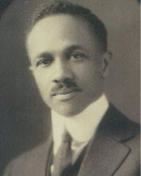
In 1921, 25 years after the first certified public accountant (CPA) certificate was granted in the U.S., John W. Cromwell, Jr. became the first Black CPA. He opened a door through which thousands of other Black accountants would eventually pass.
His father, John Wesley Cromwell, Sr., was born into slavery in 1846 in Portsmouth, Virginia. In 1851, their father purchased freedom for his family, and they moved to Philadelphia in the free state of Pennsylvania. John Cromwell, Sr. went on to become a lawyer, teacher, civil servant, journalist, historian and civil rights activist in Washington, D.C. He married Lucy A. McGuinn of Richmond and had seven children, including John Cromwell, Jr., born 1883.
Cromwell graduated with honors in 1906 from Dartmouth College and earned a master’s degree in 1907 but chose to teach high school math because of limited practice opportunities.
The road to becoming a CPA was not easy for Cromwell as he was not allowed to sit for the CPA exam in Washington, D.C., Virginia or Maryland. Moreover, it was impossible for African Americans to get a CPA license due to the experience requirement. Fortunately, New Hampshire passed a law that allowed people to obtain a CPA license without the experience requirement. With that change, he passed the CPA exam and was initially licensed in 1921 in New Hampshire.
After being certified, Mr. Cromwell continued to teach high school accounting but also practiced in his own CPA firm in the Washington, D.C. area. He worked mostly with the Black community, providing service to churches, funeral homes, restaurants and lawyers.
In 1930, he became comptroller of Howard University. In the early 1960s, 40 years after he earned his certificate, John Cromwell was still the only African American CPA in our nation’s capital. John Cromwell, Jr. died in 1971 at the age of 88.
1943: MARY THELMA WASHINGTON, CPA - FIRST BLACK FEMALE CPA IN THE U.S.
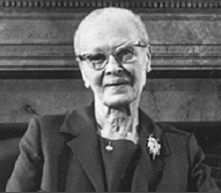
Mary T. Washington made history when she became the first Black female CPA in the U.S. in 1943. Washington was born in Vicksburg, Mississippi in 1906. After her mother’s passing when she was 6 years old, Washington moved to Chicago, where she was raised by her grandparents.
In high school, Washington excelled in math. She also worked late afternoons and weekends as a bookkeeper at Douglas National Bank. After graduation, Washington was hired at Binga State Bank, one of Chicago’s prominent Black-owned businesses at the time. At the bank, she became assistant to cashier and vice president Arthur J. Wilson, the country's second black CPA and the first in Illinois.
Washington enrolled in the accounting program at Northwestern University's School of Business, where she was the only woman in her class. In 1939 while still in school, Washington branched out on her own and founded the accounting and tax preparation firm Mary T. Washington & Co. She graduated from Northwestern with her bachelor’s degree in business in 1941.
Washington was dedicated to training the next generation of Black accountants. Her reputation and dedication drew young Black accountants from all across the country to gain work experience at her firm. By the 1960s, Chicago was said to have a higher concentration of Black CPAs than any other city in the U.S.
In 1968, Washington joined with one of her protégés to form the firm of Washington & Pittman. With the addition of a third partner, Lester McKeever, the firm became known as Washington, Pittman & McKeever, LLC, in 1976. The practice was one of the largest Black CPA firms in the country at the time. Known today as Washington, Pittman & McKeever LLC, her firm has joined forces with Mitchell Titus.
Washington died in 2005 at the age of 99 in Chicago. The Illinois CPA Society and the CPA Endowment Fund of Illinois established the Mary T. Washington Wylie Opportunity Fund in her name to support diversity in the accounting profession. The City of Chicago officially declared Sept. 30 Mary T. Washington Wylie Day to honor her legacy.
1948: JESSE H. TURNER - FIRST BLACK CPA IN TENNESSEE
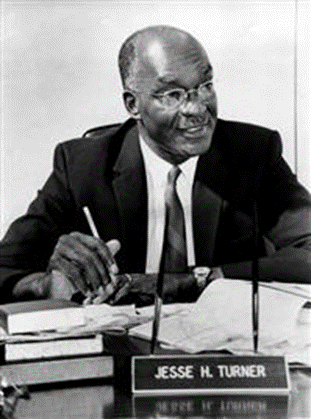
Jesse H. Turner, of Memphis, was the first Black CPA in Tennessee. Born in 1919, Turner attended LeMoyne College and was an Army Captain in World War II before receiving his CPA license in 1948. Turner was then hired by Tri-State Bank in 1949 to balance its books. He became a key figure in the bank’s success, eventually becoming its president, a position he held until his death in 1989.
Turner was also dedicated to the civil rights movement, serving as longtime treasurer of the national NAACP as well as president of its Memphis chapter. The chapter’s headquarters, Freedom House, is named in his honor. Turner was also active in local government, becoming the first Black chairman of the Shelby County Board of Commissioners.
1971: ELMER J. WHITING, JR., CPA - FIRST BLACK PARTNER OF A BIG EIGHT (NOW BIG FOUR) FIRM
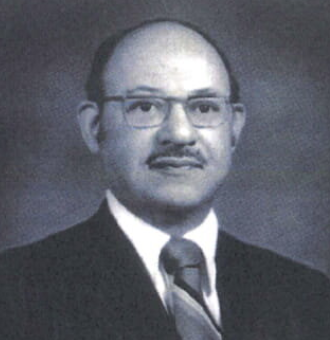
In 1971, Elmer J. Whiting Jr. became the first black partner of a Big Eight firm, then the largest national accounting firms, paving the way for a more diverse industry. Whiting was already a trailblazer, having been the first black CPA in Ohio and the 25th in the country. He graduated from Howard University in the 1940s and went on to receive an MBA from Case Western University and a law degree from Cleveland-Marshall College of Law. In an oral history project recording for Cleveland State University, his wife, Carmel, described him as someone who had a strong vision for his future. Although he passed the CPA Exam on the first try, he found it impossible to get the experience he needed to become a CPA because white-owned firms believed their clients would not work with black staff. With the encouragement of the Urban League, Whiting would apply for jobs at those organizations to demonstrate that qualified black CPAs did indeed exist. Once his own Cleveland firm was up and running, it provided the required experience for licensure to the next five black CPAs in Ohio, including Whiting’s brother. His presence inspired a conversation within the Ernst & Ernst firm on the importance of diversity, equity, and inclusion that continues to this day.
2016: KIMBERLY ELLISON-TAYLOR, CPA, CGMA - FIRST BLACK CHAIRMAN OF THE AICPA
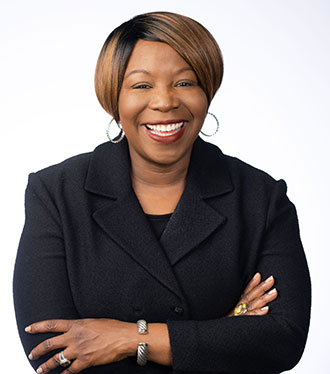
The American Institute of Certified Public Accountants (AICPA) appointed Kimberly Ellison-Taylor, the organization's first black, fifth female, and youngest Chair in its 128-year history in October 2016. She comes from a business and industry background and is a lifetime member of the National Association of Black Accountants (NABA), believing that the two organizations are stronger together. Kimberly's journey was anything but traditional, having graduated from Carver Vocational Technical High School as valedictorian before earning a bachelor's degree in information systems management and technical writing, an MBA, a master's degree in information technology, and an accounting certificate. She has also volunteered in the community and the profession and previously chaired the Maryland Association of CPAs (MACPA) Board of Directors. Kimberly is committed to increasing interaction between AICPA and NABA, as well as focusing on talent development and inclusion at AICPA and throughout the accounting profession. The appointment of Kimberly Ellison-Taylor is a big step towards celebrating black trailblazers in the accounting profession.
TO ALL FUTURE TRAILBLAZERS - THANK YOU!
TSCPA recognizes the trailblazers who have paved the way for today’s Black CPAs. With only 1-2% of CPAs and only 7% of accounting graduates identifying as Black, we acknowledge there is still much work to be done to continue paving the way for future professionals. Thank you to those who continue to work toward creating a more diverse and equitable talent pipeline.
